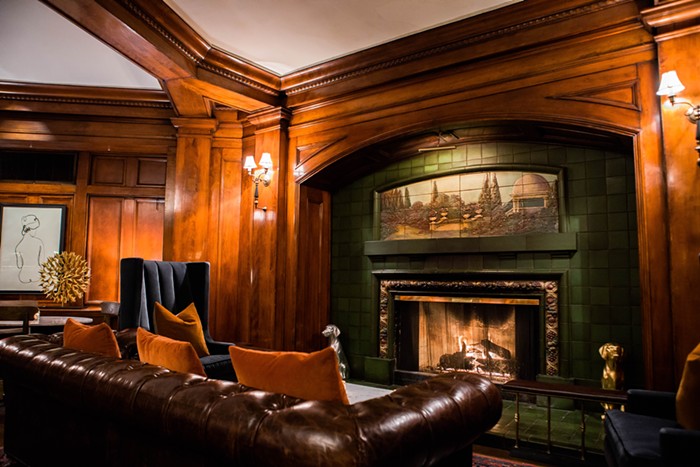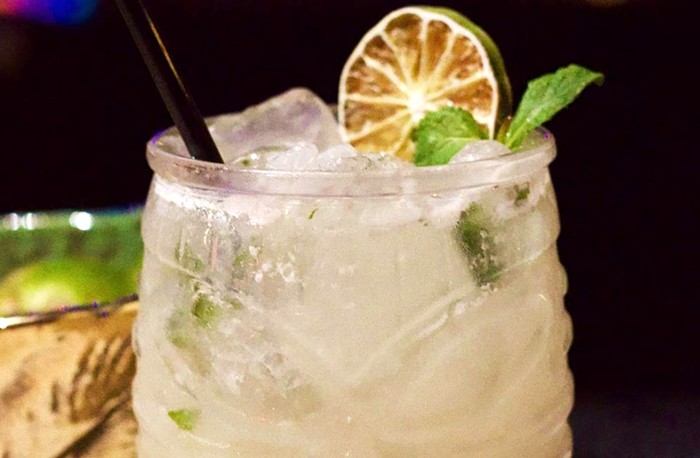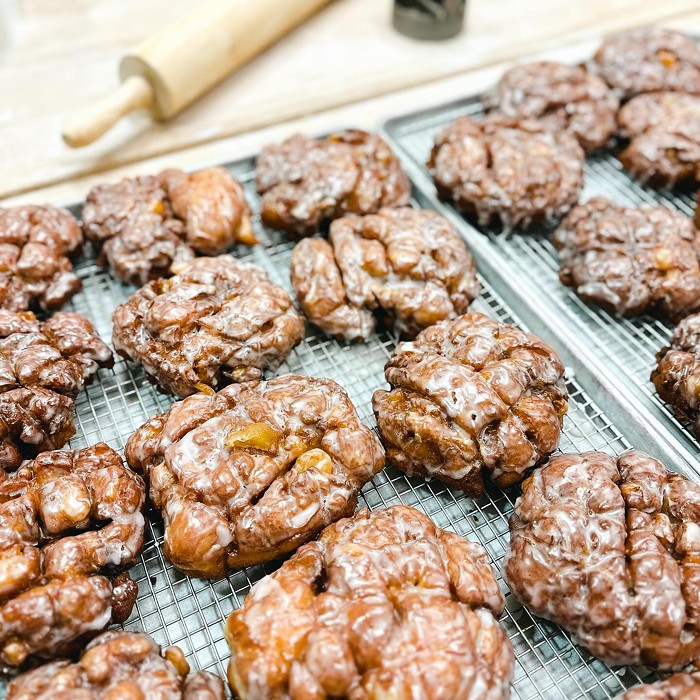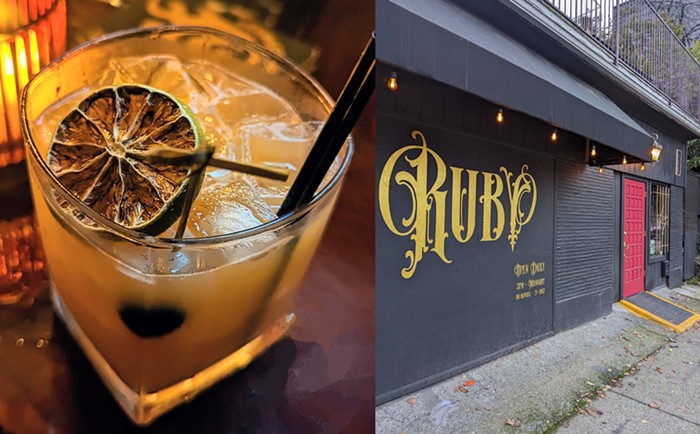Together, Matt and I comprise decades of barbecue experience. Matt comes from Dallas, and his memories of good beef brisket sandwich are sometimes sharper than his memories of his own parents. As for me, I lived in Memphis for four years, where I ate pork ribs with a religious devotion. Before I left the South, I was a judge in a three-day contest involving all of Memphis' rib joints.
The Standards: In our reviews, we did not favor any of the various regional styles that restaurants here attempt to emulate (Texas, Memphis, Kansas, etc.). Our question was elegant: Was it good?
To qualify as real barbecue, the meat must be slow-cooked for anywhere from six to 12 hours, at relatively low temperatures. All traces of fat should be cooked out during this process. The smoke from the wood used must be allowed to pervade the taste of the meat with subtle, delectable undertones.
The sauce is an entity unto itself, but good barbecue sauce shouldn't just mask the failings of the meat--it should complement and enhance a well-smoked brisket sandwich or slab of babyback ribs. Calling sauce good just because it's super spicy is like saying the symphony was good because the musicians were really loud.
We used a five-point scale, though you'll note that we got thick into the decimal places a few times. Part of that is because we found ourselves giving some half-points. The other reason is that we may have had beef and pork in two forms--brisket and beef ribs, or boneless pork and babyback ribs. Whenever we loaded down on the two-plate meals, we averaged the scores. Same goes for the sides--for space reasons, the beans, potato salad, greens, cornbread, and slaw are all averaged together.
We also created a category called "down-homeness." Top points go to the small proprietors who make you feel like you're eating in their living room. Hall's Mr. Bar-B-Que in Ballard got five stars, for example, because there were only three tables, because the television was tuned to The Jerry Springer Show, and because Mr. Hall himself became unabashedly engrossed in the show. On the other hand, Floyd's Place Beer & BBQ in Queen Anne has the look and feel of a yuppie bar established by the founder of Red Robin. And the lunchtime service was slow, but not in a friendly, "down-homey" way.
After the meal, we asked ourselves a crucial question: "Are we still hungry?" One should have a warm, sleepy feeling after barbecue, which only comes from a pleasantly full stomach. The OK Corral BBQ Pit Stop weighed us down with two slabs of ribs, a plateful of cornbread, two healthy dollops of potato salad, and two big bowls of greens. Tony Roma's, on the other hand, failed not only because its ribs were toothpick-tiny, but also because my girlfriend almost vomited from her sickeningly sweet pork sandwich. Clearly, hers was not a pleasantly full stomach.
Our Favorites: After eating meals at 15 restaurants, the winners were clear. Jones Barbeque in Rainier Valley has the best ribs and the best sauce in town. The ribs are lean, large, and consistently tender, and the wood (hickory) flavors the meat with just the right subtlety. The Arkansas-Texas influenced sauce (our favorite in the city) has a complex flavor of its own, and it doesn't overpower the pork.
Backdoor BBQ in West Seattle had the best boneless pork, as well as the best beef brisket. During a lunchtime visit, I was delighted to see the dull side of my plastic knife cut through the boneless, fat-free pork. I was ecstatic to hear the cook-proprietor brag that he uses fruitwood to smoke the pork for 10 to 12 hours, choosing only the best strips of meat. It shows. The pork at Backdoor is a physical manifestation of the word "succulent." The sauce could use some work (it has no character), but oh, the meat....
Backdoor's biggest problem, however, is that Seattle doesn't know the place exists. After visiting three times, I could tell that standards slipped when business dropped. During off-hours (weekend evenings, apparently), the pork toughened, requiring the sharp edge of the plastic knife. This is a shame, for two reasons: This obvious master of barbecue should never fail to respect his meat, and he should never have off-hours.
So there you have it. Jones for pork ribs and Backdoor for beef brisket and boneless pork (with qualified praise). No need to thank us--we were happy to do it.


















